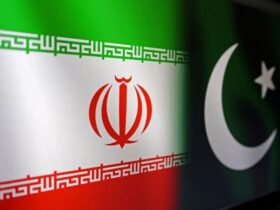The Essence of Lunar Year
The Lunar Year, a cornerstone of various cultures around the globe, marks time based on lunar cycles, contrasting with the solar calendar. Its historical origins trace back to ancient civilizations, where the moon’s phases were integral to planning agricultural activities, festivals, and rituals. In today’s multicultural tapestry, the Lunar Year embodies not just a timekeeping system but a rich amalgamation of cultural significance, deeply rooted in traditions that span centuries. This celebration, observed with fervor across countries like China, Vietnam, and Korea, serves as a bridge connecting the past with the present, offering insights into the enduring values and shared human experiences that these cultures honor.

Cultural Significance Across Countries
Major Countries Celebrating
In China, the Lunar New Year, or Spring Festival, is the epitome of reunion and rebirth, marked by the ubiquitous red decorations symbolizing luck and prosperity. Vietnam’s Tết Nguyên Đán weaves together reverence for ancestors with the welcoming of the new spring, showcasing distinctive customs like the meticulous preparation of holiday foods. Korea’s Seollal emphasizes family bonds and respect for ancestors, featuring special rites and traditional games. Each country’s celebrations reflect its unique cultural identity, yet all share common themes of renewal, family, and the cyclical nature of life.
Cultural Impact
The Lunar Year’s impact extends beyond mere festivity; it influences societal norms, economic activities, and even international relations. Community bonding is at its peak, as families gather, often bridging geographical divides. Economically, the Lunar New Year period sees a surge in consumer spending, travel, and tourism, showcasing its significance as a driver of economic vitality. Globally, the increasing recognition of Lunar Year celebrations highlights the growing appreciation and exchange of cultural values, fostering a sense of unity and mutual respect among diverse populations.
Key Traditions and Their Meanings
Rituals and Practices
Central to the Lunar Year are rituals that cleanse the past year’s misfortunes, inviting positive energy for the coming year. Offerings to ancestors, symbolizing respect and remembrance, and the practice of wearing new clothes, signifying a fresh start, are universal across cultures celebrating this occasion. These traditions, rich in symbolic meaning, underscore the values of gratitude, renewal, and familial bonds that define the essence of the Lunar Year.
Lunar Year Foods
Food plays a pivotal role in Lunar Year celebrations, with each dish imbued with symbolism. In China, dumplings signify wealth, while in Vietnam, bánh chưng represents Earth and ancestral homage. Korea’s tteokguk, a rice cake soup, symbolizes longevity and a clean start. These culinary traditions not only offer a feast for the senses but also connect individuals to their cultural heritage and shared histories.

Lunar Year and Modern Celebrations
Modern celebrations of the Lunar Year blend traditional customs with contemporary innovations, reflecting changing societal dynamics while retaining cultural essence. Technological advancements facilitate virtual family reunions, ensuring that distance does not dampen the spirit of togetherness. Public celebrations, including parades, fireworks, and concerts, have adapted to include modern entertainment while honoring traditional practices, illustrating the dynamic nature of cultural celebrations in a globalized world.
Reflecting on Lunar Year’s Global Reach
The Lunar Year’s significance as a cultural phenomenon extends far beyond its geographical origins, playing a pivotal role in promoting cultural understanding and exchange. Through the global observance of this ancient tradition, individuals from diverse backgrounds come together, fostering a shared appreciation for the rich tapestry of human culture. This collective celebration not only enriches our understanding of different cultural practices but also highlights the universal values that connect us across cultures: family, renewal, and the celebration of life.
Visit Unicorn Blogger For More Articles & Blogs ! Leave your comments for us to Improve .





























Leave a Reply